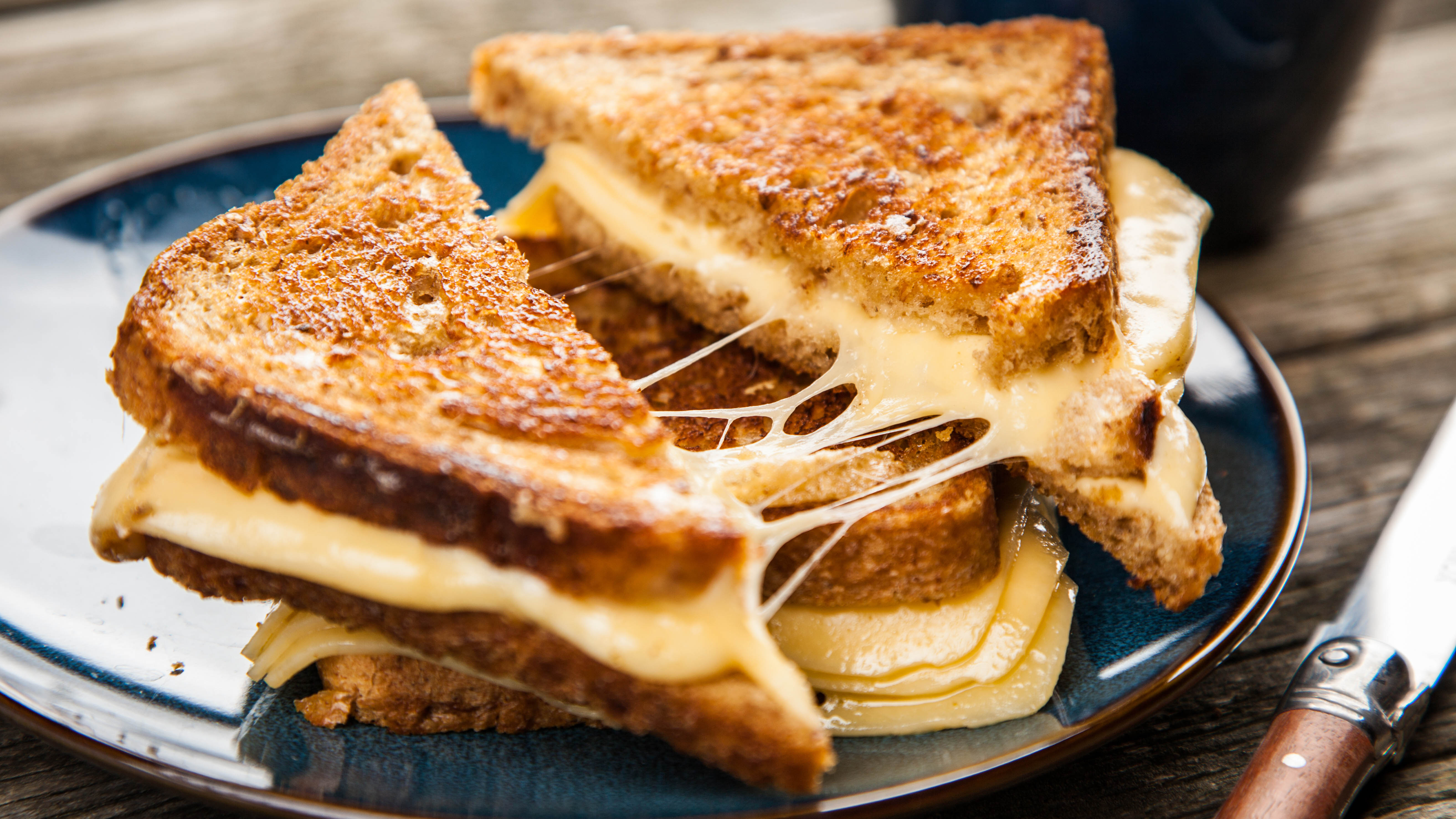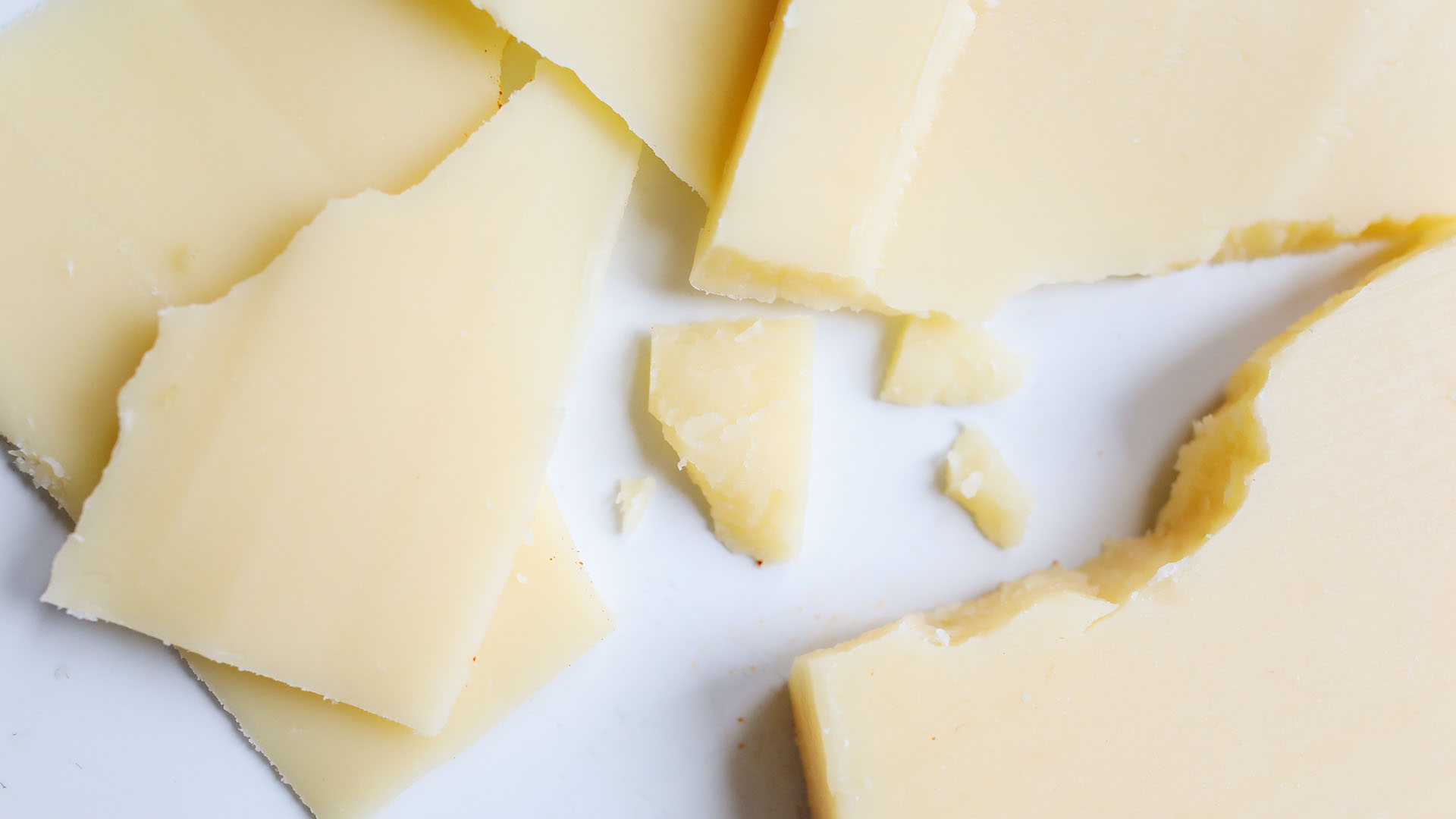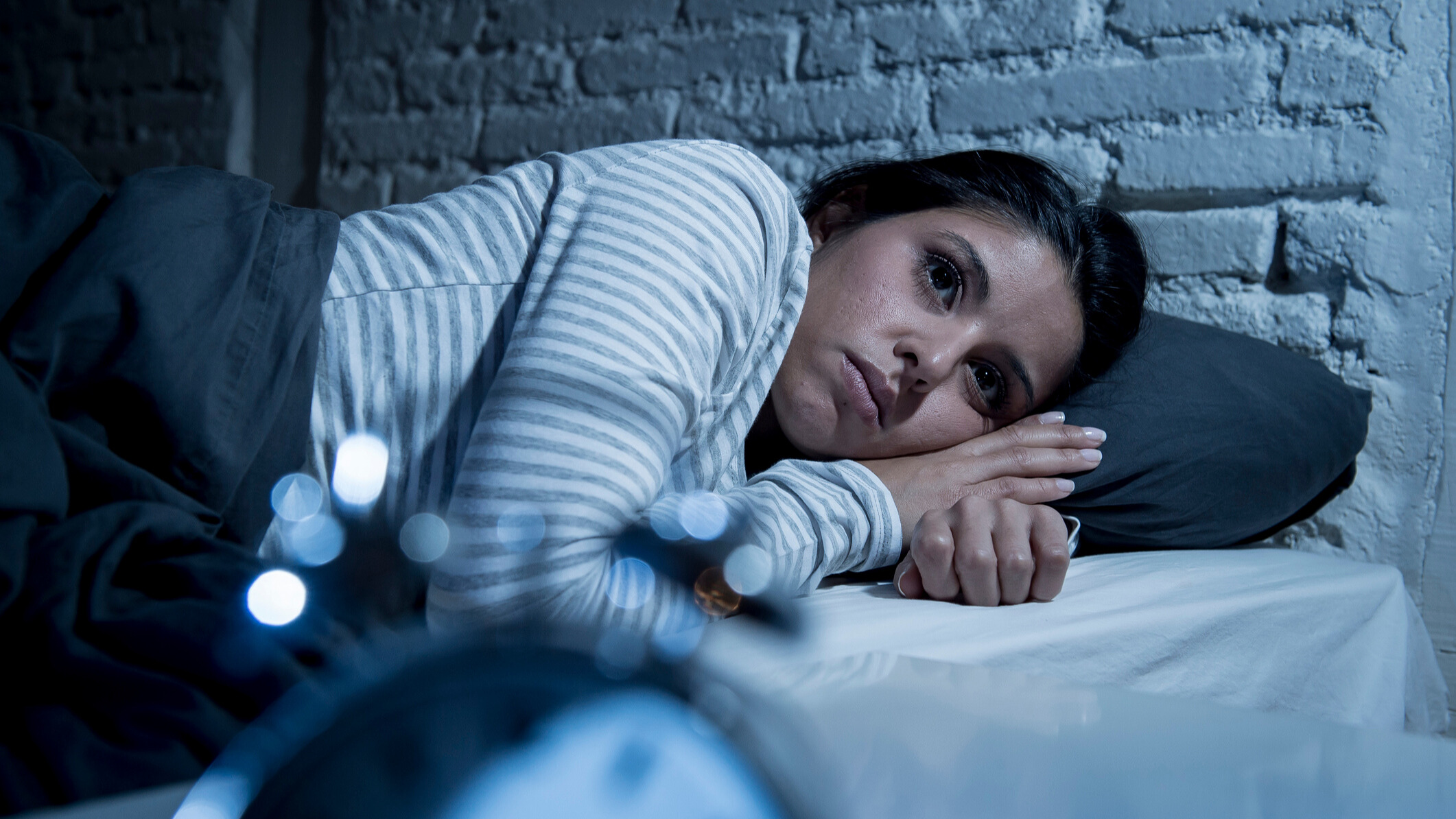Cheese really could be giving you nightmares, new study says — here's why
New study reveals lactose intolerance might be disturbing your sleep

If you've ever blamed a wild dream or horrifying nightmare on a cheese plate before bed, the latest research into food and dreams indicates you might be on to something.
A new Canadian study has found that eating dairy (including cheese) is associated with nightmares. However, their research indicates that cheese-induced bad dreams are connected to one group in particular: those with lactose intolerance.
Here, we're looking into the study findings, how exactly cheese might be contributing to nightmares for some people, and, because we know that diet can also impact our sleep for the better, we're sharing some foods you might want to consider for a healthy nighttime snack. (Hint: none of them are cheese!)
Key takeaways
- Researchers surveyed 1,082 students about their eating habits and dreams
- 5.5% of participants said that foods affected their dreams
- Lactose intolerance was found to be associated with nightmares
While the theory of "cheese dreams" or nightmares induced by cheese has been around for a while, researchers behind a new study into the effect of food on our dreams note that there isn't a huge amount of research into the topic.
While anecdotal accounts have long existed (like, they say, the spicy melted cheese toast causing nightmares in cartoonist Winsor McCay's early 20th Century drawings), real evidence was lacking.
So, to further explore the relationship between what we eat, sleep and dreams a new study published in Frontiers in Psychology surveyed 1,082 psychology students at MacEwan University in Alberta, Canada about their eating habits and sleep, and their perceptions of how they are connected.

The researchers were hoping to discover "whether specific foods influence dreams directly (food-specific effects), through physiological symptoms (food distress), or via altered sleep quality (sleep effects)."
Get instant access to breaking news, the hottest reviews, great deals and helpful tips.
In the study, 40% of participants reported that particular foods had an impact on their sleep, with around 25% saying certain foods made their sleep worse, and around 20% saying specific foods improved their sleep.
Perceived culprits of bad sleep were: "Desserts/Sweets (22.7%), Spicy food (19.5%), and Dairy (15.7%)."
Only 5.5% of participants reported that certain foods or eating late affected their dreams — which the researchers call "food dependent dreaming (FDD)."
And, according to the results, "the perceived effect of food on dreams was associated with higher nightmare recall and Nightmare Disorder Index scores."

Researchers looked at how particular foods affected dreams, and found that the respondents blamed desserts and sweets (31%) and dairy (22%) for disturbing changes to their dreams.
Lactose intolerance was associated with gastrointestinal symptoms and nightmares
While that indicates a slice of chocolate cake before bed might be worse than a chunk of cheese when it comes to nightmares, researchers also looked at the relationship between those with food allergies and the reports of bad sleep and disturbing dreams.
They discovered that lactose intolerance was associated with gastrointestinal symptoms and nightmares, as well as poorer sleep.
Additionally, researchers also found that healthy eating, including not eating at night, "predicted higher dream recall," while unhealthy eating "predicted nightmares and dream negativity."
Will cheese give you nightmares?
According to this study? It's people who are lactose intolerant that may find that eating dairy has the most significant negative impact on their dreams.
Among the 5.5% of participants who said that foods affected their dreams, dairy came in second after sweets as the perceived cause of bad dreams, with participants claiming it induced "disturbing (22%) and bizarre (27%) dreams."

However when they explored what participants had reported about food intolerances, bad sleep and nightmares in relation to one another, they found that "food sensitivities, particularly Lactose Intolerance" were contributors to the prevelance of nightmares.
The study's results showed that the severity of gastrointestinal symptoms (which are commonly indigestion, bloating, heartburn or constipation) in those that were lactose intolerant, impacted nightmares.
Nightmares are worse for lactose intolerant people
However, it's not because dairy (like cheese) itself is directly causing nightmares.
Instead, the results of the study suggest "dairy-induced gastrointestinal symptoms as one plausible basis for bizarre or disturbing dreams."
“Nightmares are worse for lactose intolerant people who suffer severe gastrointestinal symptoms and whose sleep is disrupted,” said the lead author of the research, Dr Tore Nielsen of Université de Montréal.
Can food help you sleep?
While it's generally best to leave a few hours between eating and sleeping, there are some foods with melatonin and tryptophan that can aid your slumber. Here are three evening snacks to consider if you can't resist a late night bite.

Almonds
A handful of almonds in the evening could do wonders for your sleep.
That's because they're rich in melatonin (the sleepy hormone), according to Northwestern Medicine. And, according to California Almonds, a 1oz serving provides 76mg of magnesium, (which can support deep, restorative sleep).
One study even showed that sweet almonds reduced insomnia in students who ate 10 a day for two weeks.
Summer fruits
One benefit of warmer weather is the seasonal fruits it brings, and luckily, the likes of berries, kiwis and pineapple can all help with your sleep.
Natural treats like strawberries and blueberries are sources of melatonin, while research has shown kiwis "may improve sleep onset, duration, and efficiency in adults with self-reported sleep disturbances."
Pineapple also contains melatonin, as well as vitamin C, fiber and magnesium, meaning a few chunks are a welcome addition to an evening fruit salad.

Wholegrains
Oats, quinoa, brown rice, breads, tortillas and cereals are all healthy wholegrains that work for a healthy nighttime snack.
While we wouldn't suggest having a heavy dish, consider something like a few wholegrain tortilla chips or oatcakes, or even some popcorn if you have a hunger pang in the evening.
Why? Because wholegrains are "are a good source of phytonutrients, melatonin, and tryptophan. These nutrients have been shown to be important for quality sleep," Shelley Balls, MDA, RDN, LDN, a registered dietitian and nutritionist for Consumer Health Digest previously explained to us.
Jenny Haward is a U.K. based freelance journalist and editor with more than 15 years of experience in digital and print media. Her work has appeared in PEOPLE, Newsweek, Huffpost, Stylist, ELLE, The Sydney Morning Herald and more. Jenny specializes in health, wellness and lifestyle, taking a particular interest in sleep.
You must confirm your public display name before commenting
Please logout and then login again, you will then be prompted to enter your display name.
 Club Benefits
Club Benefits





